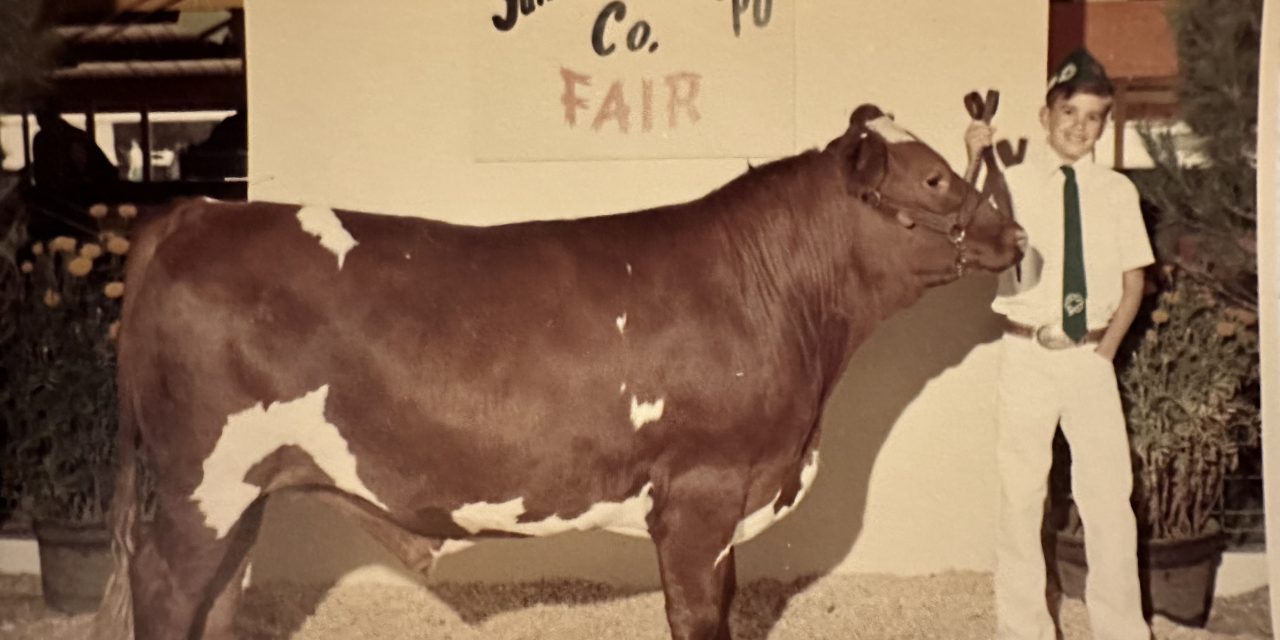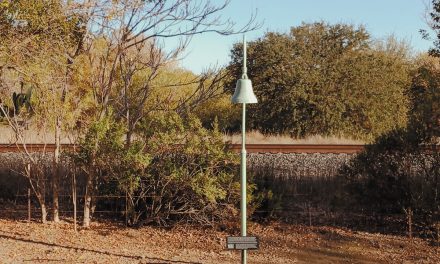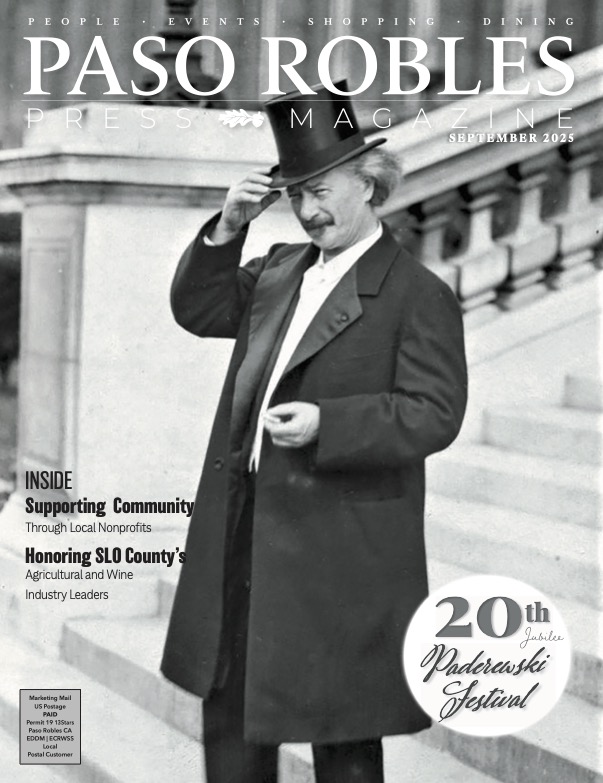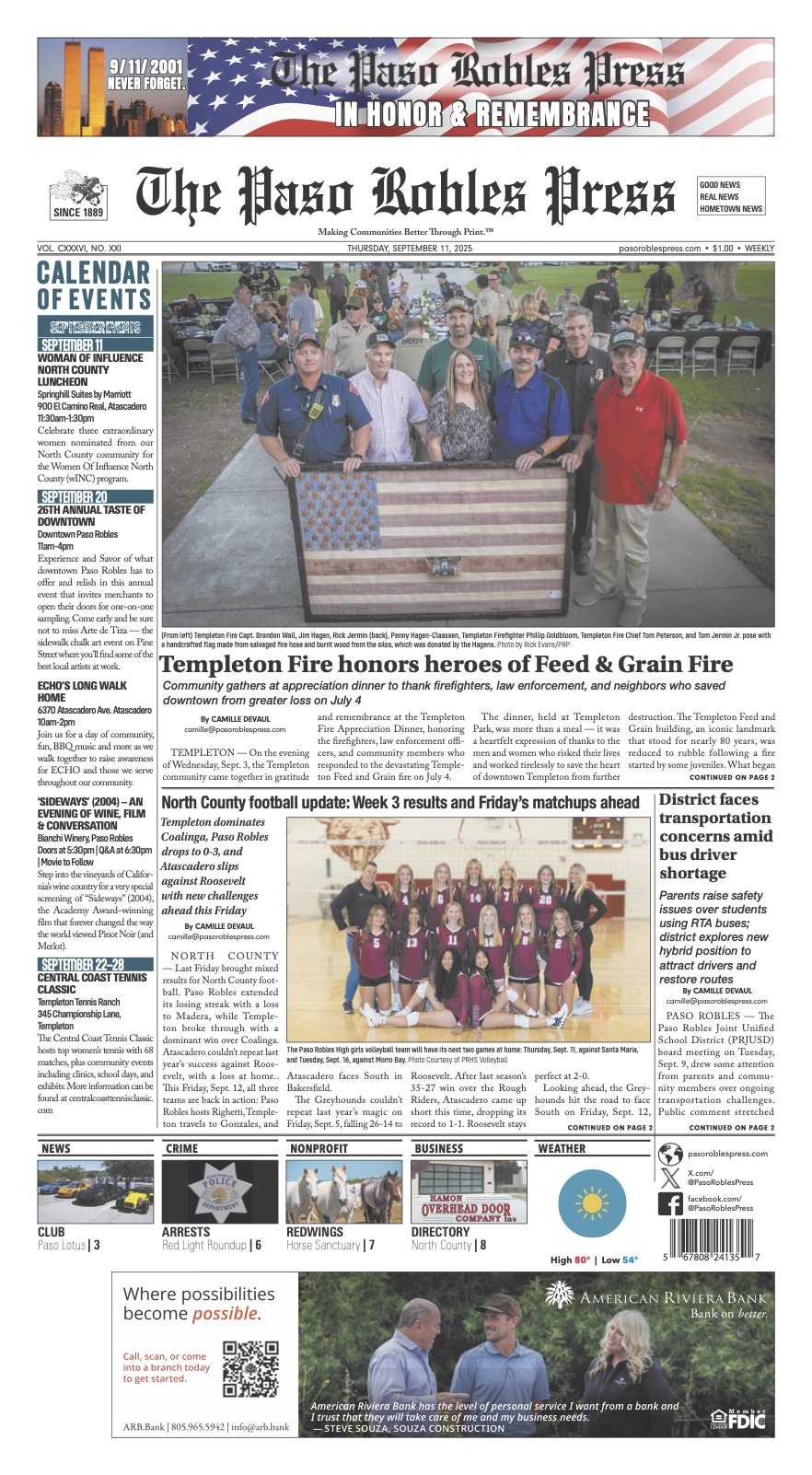Conveniently situated between Hotel Cheval and the Hotel Cheval Coffee Shop (one of the best in Paso Robles if you haven’t tried it, tell them I sent you) on Pine Street is a little two story brick building with green and white accents reminiscent of a Gun Smoke era movie set. In gold above the door it reads “Clark Company,” and this is where I entered to then be led to a room trapped in time.
Again, I felt like I was sent into a John Wayne movie set with plump vintage couches and wood furniture and saloon style lamps. On the walls where dozens of family photos and in the corner a singular desk. It was here that I was meeting to interview Paul Clark, our new Executive Director of the San Luis Obispo County Farm Bureau. But Paul’s history with SLO County goes back much farther, with a family steeped in agriculture and memories that go as far as the White House.
Paul was born in Ventura County where his father, William (Bill), was from and who came from a ranching and cattle and horse background.Bill would eventually become a successful lawyer — more on that later — and was looking to relocate his family. His grandfather, Bob gave some fruitful advice.
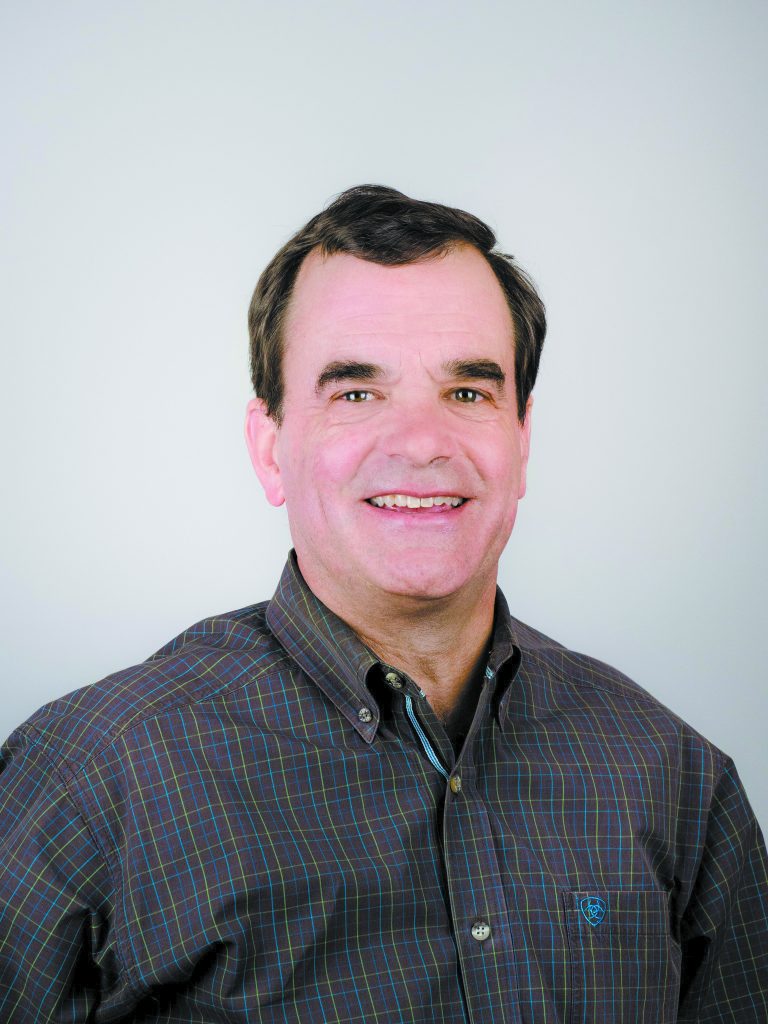
“He [Bob] had said, go look at San Luis Obispo County. And and so dad did. He looked around at a number of places and and fell in love with the ranch we’re on now that that’s still in the family,” Paul further explained his great-grandfather’s logic that San Luis Obispo County was far enough from the influences of big City of Los Angeles and the Bay Area that it would retain its rural character.
When Paul was five years old (1969), the family moved permanently to the family ranch located north of Shandon and up McMillan Canyon. Paul thrived in Shandon. He and his four siblings all attended Shandon High School, helping on the ranch on the side.
Paul says growing up, “it was full on ranching. I mean, my brothers and I started with 10 short horn cows, started our small cow calf operation, and we worked it over the years. And we worked on neighboring ranches and farms. We were all involved in 4-H.”
When asked what some of his favorite memories of growing up were, he didn’t even need to think about it, “Oh, gosh. The fair. The fair was bigger than Christmas.”
He explained it was “The excitement around it, the excitement of spending that time there with an animal and showing it and taking it through the auction. And it was great fun. So when my kids took animals in the fair through 4-H, it was fun to kinda relive all of that. And watching it, I could see so many parents that I grew up with and that were [there].”
The small community of Shandon offered the quintessential every one knows everyone town feel where Paul remembers everyone looking out for each other.
“Shannon High School was fun. FFA was a big part of my life. I was on the the land judging team and we went to national finals in Oklahoma my junior year,” says Paul. “And so it was a really unique, fun community. It seems that all the kids have jobs whether for farmers or something else. It was a great opportunity to learn.”
In the midst of ranch life, Paul’s father was also heavily involved in Ronald Reagan’s office from the start of Reagan’s campaign for California Governor. He started as his Ventura County Campaign Chairman, then became his Chief of Staff and by the time Paul was a senior in high school, his parents were moving to Washington D.C. to become Reagan’s National Security Advisor. Bill would then serve as the Secretary of Interior and leading up to his Washington stint, he served as a Judge in the Superior Court of California from 1969 to 1971, Associate Justice of the California Court of Appeal, Second District, Division One and in January 1973, Governor Reagan appointed Clark as an associate justice of the California State Supreme Court, where he served from March 23, 1973, until February 25, 1981 — inevitably giving him the name “Judge Clark” as he is fondly remembered as.
One would think that your dad being in arguably one of the most well known President’s office and circle of friends, would change the way people treated you. But Paul says life in Shandon, kept him thankfully humble, “You know, friends being friends kept me humble. I don’t feel at least in my day to day life with, whether it be friends or school or anything else, I don’t think it really changed.”
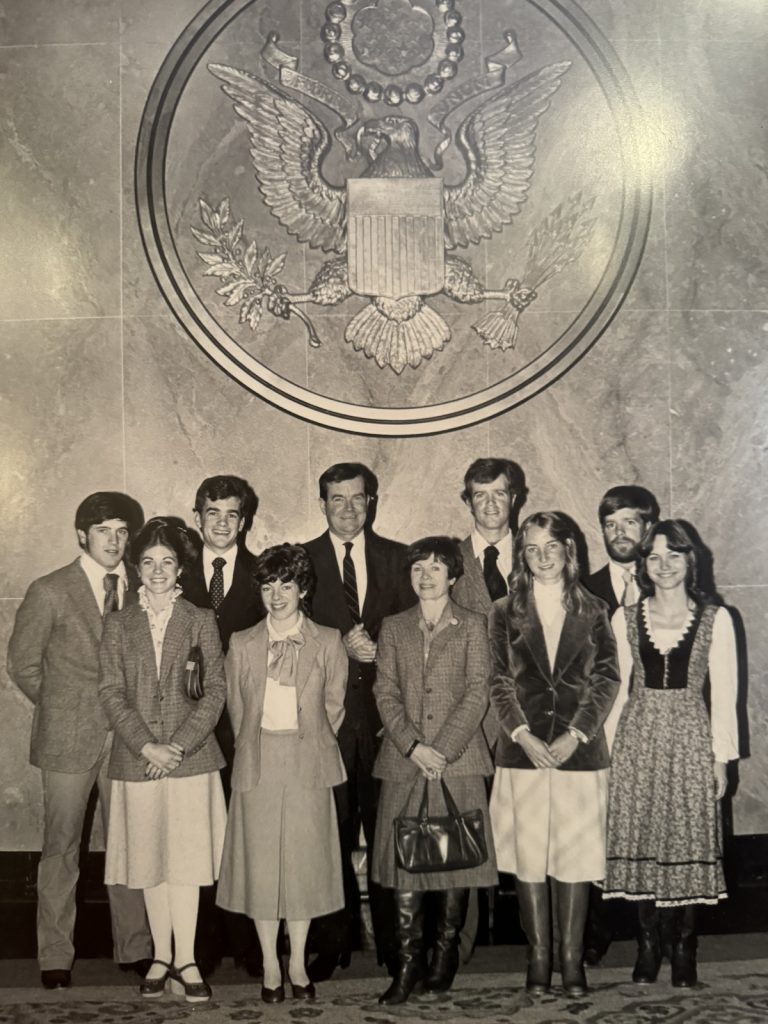
Paul did learn a lot about politics during his dad’s time in the White House and history with Reagan, “It made me very conscious of the history of politics, the function of government and the relationship of government to our individual lives. It made me realize that there’s a very human side to the people who are in government, whether in their career, they’re elected, or they’re behind all of it. There is a a human being. And especially in today’s media environment it just seems like it’s so removed.”
Paul remember’s Reagan as being a very engaging and personable man, “He didn’t feel like this was just some automatic handshake, how are you, and move on to the next person. I think that was a big part of his success is that he could work with Congress in a way that presidents haven’t been able to in a while.”
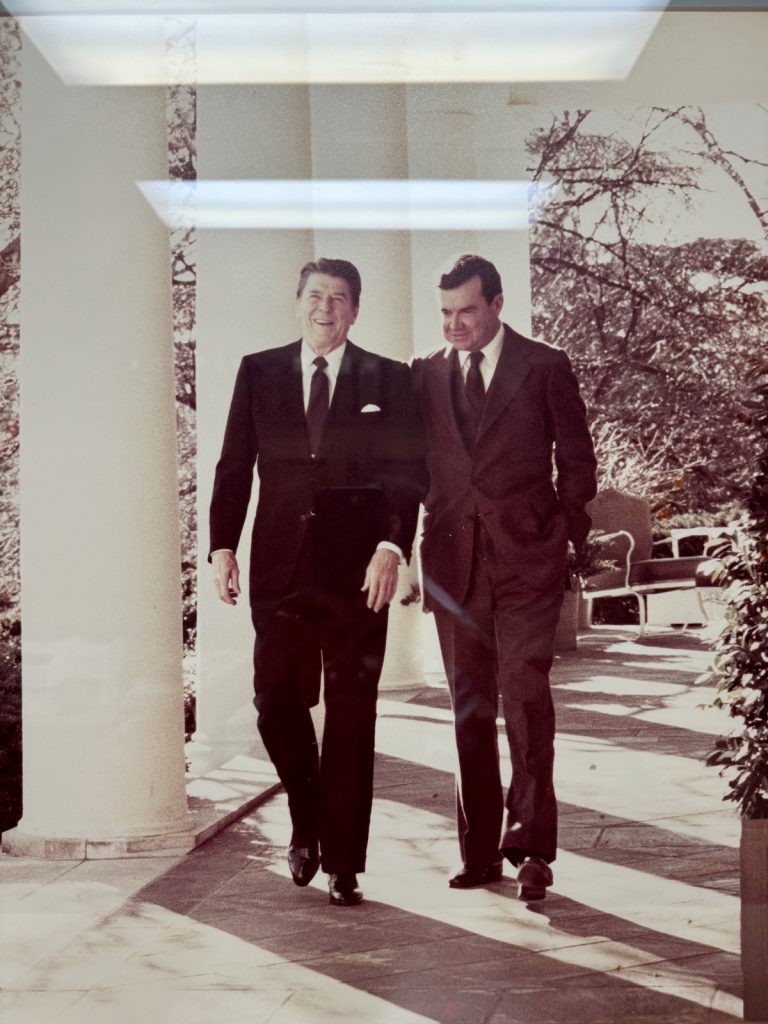
Following high school, Paul had a quick stint at Cal Poly before deciding to divert and spend four years in the United States Marine Corps. Not ready for the commitment for school — instead learning to fly and working at the Paso Robles Airport — the Marines gave Paul just what he needed so when he came back to the States he was ready to head back to school. Paul ended up graduating from Cal Poly San Luis Obispo and McGeorge School of Law and has been an attorney in SLO County since 1996. He and his brother Pete Clark both used their father’s office building on Pine Street and have kept Judge Clark’s office just as he left it. This June, Paul and his wife Gigi celebrated 31 years of marriage. The two raised four children together here in SLO County.
Paul has been a board member of the San Luis Obispo County Farm Bureau for twenty-seven years, serving ten years on the Executive Committee and two years as President. He serves as the Vice Chair and a member of the Executive Committee of the San Luis Obispo County Farm Supply Board of Directors and is a member of the San Luis Obispo County Cattlemen’s Association and the Estrella Warbirds Museum.
This April, he stepped in as the Executive Director of the SLO County Farm Bureau, succeeding Brent Burchett, who became Executive Director in 2019, and has moved back to Kentucky to be closer to family.
“I’m honored to be chosen as the new Executive Director. Having worked with four previous Executive Directors of our Farm Bureau, I know I have big shoes to fill,” says Paul. “I’m excited to work with so many good friends I have made over the years to continue advocating for California production agriculture, our great state’s most important industry.”
As Executive Director, Paul is looking forward to building the bridge between agriculture and those outside of it, because we all need agriculture. We need the farmers and the ranchers and everyone in between.
PASO ROBLES PRESS MAGAZINE
Copies of Paso Robles Press Magazine are directly delivered to 23,000 readers in zip codes 93446, 93451, and 93465 and 2,000 dropped with support from advertisers and subscribers. Together, we are Making Communities Better Through Print.™
To subscribe or advertise, click here.

